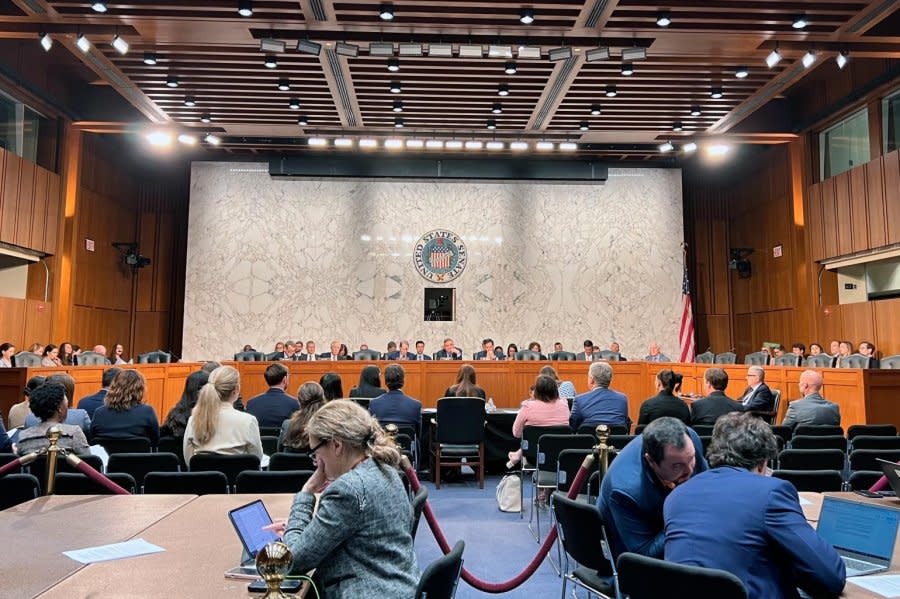Senators tackle foreign election influence amid increasing mistrust of government

WASHINGTON, May 15 (UPI) -- The Senate Select Committee on Intelligence discussed the strategies to address foreign threats ahead of the November elections during Wednesday's first open hearing in the current campaign season.
The committee chairman, Sen. Mark Warner, D-Va., pointed out two main strategies foreign actors use: interference efforts that target election infrastructure and influence efforts that seek to affect elections through covert or other illegal tactics.
However, Jen Easterly, the director of the Cybersecurity and Infrastructure Security Agency, reassured that election infrastructure has never been more secure and the election stakeholder community has never been stronger.
"Election officials ran secure elections in 2018, 2020 and 2022, and there is no evidence that malicious actors changed, deleted or altered votes," Easterly said.
The director of National Intelligence at the Office of the Director of National Intelligence, Avril Haines, also noted that the U.S. government's efforts to protect the elections have improved significantly since the 2016 presidential election, when foreign interference was first found.
"It is my view that the U.S. government has never been better prepared," Haines said.
However, Warner expressed concern that the landscape is more complicated this year, and that foreign actors could be more sophisticated and aggressive in protecting their interests in global politics.
"In the case of Russia, [Vladimir] Putin clearly understands that influencing public opinion and shaping elections in the U.S. is a cheap way to erode American and Western support for Ukraine," he said.
Vice Chairman Sen. Marco Rubio, R-Fla., said Russia is expected to be the main, but not the only, foreign threat in the current elections.
"Russians are the best in it. They have been doing it for a long time, and they've perfected it," he said. "But every election cycle, more and more cast of characters are joining the parade. We will see more nation-states and maybe non-state actors."
Warner said he expects foreign interference from Russia, China, Iran, Cuba, Venezuela, terrorist organizations like Hezbollah and others.
In this election cycle, Warner said, foreign actors would go beyond traditional methods, like propaganda, since many Americans across the political spectrum do not trust the federal government and mainstream media.
"[They] increasingly rely on the wildest conspiracy theories," he said.
This mistrust provides opportunities for using artificial intelligence, and Warner expressed concern that the recently released bipartisan guidance on AI bills would not be enough to protect elections from constantly developing technology.
Moreover, Rubio highlighted that the use of AI for video and audio deepfakes poses the question of how to address foreign influence without being accused of governmental interference in the elections, as the existing process varies depending on the circumstances.
"Who is in charge of letting people know this is fake, that's influencing our election?" Rubio asked. "What are we doing to protect the credibility of the entity, whoever is in charge of saying it, so the other side does not say our own government is interfering?"

